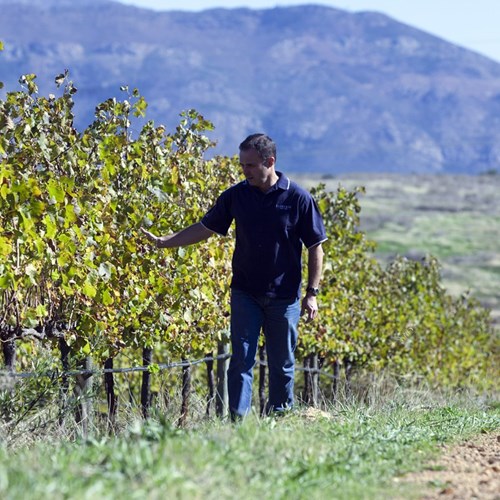Even the biggest wineries (and especially their vineyard workers) are breathing a sigh of relief as natural technique replaces chemical technology. The major wineries are learning that working with nature produces a set of positive, even unintended, results that are helping them produce better wines.
Soil
The basic principle is that healthy soil will resist pest and disease attacks, just as a healthy person is not prone to sickness. And what is healthy soil? One that is stimulated into a greater diversity of life forms by the addition of decaying plant material and manures. Organically treated soil hence may be resistant to phylloxera and other pests and diseases because the soil life whose numbers have multiplied through the addition of actively decaying organic matter have colonized almost all the ecological niches, leaving no room for pathogens to take hold and multiply.
Thanks to increasing environmental consciousness, we have again changed our thinking about the relationship of human beings to the Earth. That eco-generation has moved into the seats of power in all walks of life, including that of winegrowing.
What is organic
The phrase "organic vineyard" conjures up an idyllic picture of clean rows of green, trellised vines, their leaves combed by beneficial insects hunting for pests, the skies above patrolled by hawks and owls hunting for rodents, field workers safe from toxic chemicals, and wines pure and delicious - and that is what we aspire to achieve.
Waverley Hills Organic uses environmentally friendly techniques, such as to stimulate the populations of beneficial insects, composting for fertilization and Integrated Pest Management for pests and diseases.
There is an increase in the public's demand for organic foods. Some of this demand is driven by a sophisticated understanding of and belief in organic methods, but most is the result of the public's leeriness of pesticide-laden foods, irradiated or genetically altered crops, and its desire for a safe, wholesome food supply.
Environmental grape culture - whether sustainable or certified organic - is more than just abjuring chemicals. It also includes fertilizing with composts and manures, using cover crops, such as vetch and legumes, for soil improvement and as host plants for beneficial insects, and more dramatically, allowing some parcels in proximity to the vines to grow wild. These natural patches of bramble and forest provide food and habitat for the indigenous fauna, including beneficials, which add a healthy diversity to a vineyard's eco-system.
Waverley Hills Organic Wines
